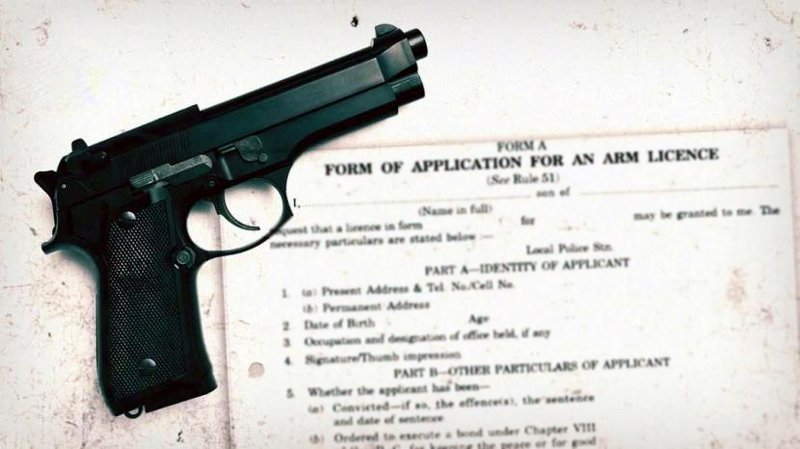JAMMU, India — The High Court of Jammu and Kashmir and Ladakh on Friday issued a stern directive to India’s powerful Ministry of Home Affairs (MHA), demanding a final decision within six weeks on whether to grant prosecution sanction against eight senior Indian Administrative Service (IAS) officers. The officers are accused of involvement in one of the country’s largest-ever illegal arms license scandals.
A Division Bench, comprising Chief Justice Arun Palli and Justice Rajnesh Oswal, instructed the central government to submit a formal status report, in the form of an affidavit, detailing its conclusive decision. The order was passed during a hearing of a long-running public interest litigation that has sought to bring officials to justice for a scam that has national security implications.
FCRF Launches India’s Premier Certified Data Protection Officer Program Aligned with DPDP Act
The Court’s Ultimatum
Acting on the case, the court directed Deputy Solicitor General of India Vishal Sharma, who appeared on behalf of the Home Ministry, to ensure a final, formal decision is made and reported back. Mr. Sharma had submitted to the court that the process of examining the proposals was underway and, in all likelihood, would not take more than six weeks. “Be that as it may, he submits that he would furnish a specific affidavit/status report in this regard,” the Division Bench observed, formalizing the timeline.
This directive came after the advocate for the petitioner argued that the accused officers continue to “occupy prime positions and wield a lot of influence in the corridors of power,” necessitating the court’s continued oversight. The court scheduled the next hearing for October 9, reinforcing its close monitoring of the case.
A Scam of Unprecedented Scale
The case revolves around a massive fraud unearthed by the Rajasthan Anti-Terrorism Squad in 2017, which was later handed over to the Central Bureau of Investigation (CBI). The CBI’s investigation revealed that between 2012 and 2016, an estimated 274,000 arms licenses were issued across Jammu and Kashmir, allegedly by district magistrates using forged documents in exchange for money. Approximately 1.53 lakh licenses were issued in 10 districts of the Jammu division and 1.21 lakh in 12 districts of the Kashmir division.
The CBI had initially sought prosecution sanction for nine IAS officers. The current proceedings focus on eight of them, whose prosecution proposals were forwarded by the J&K administration to the Home Ministry this year. The officers are:
- Pandurang Kondbarao Pole (AGMUT: 2004)
- M Raju (AGMUT: 2005)
- Yasha Mudgal (AGMUT: 2007)
- Jatinder Kumar Singh (JH: 2008)
- Dr. Shahid Iqbal Choudhary (AGMUT: 2009)
- Niraj Kumar (AGMUT: 2010)
- Prasanna Ramaswamy (AGMUT: 2010)
- Ramesh Kumar (AGMUT: 2011)
The Long Road to Accountability
The case has moved slowly, largely due to bureaucratic delays. The matter is being heard as a Public Interest Litigation (PIL No.09/2012), titled Sheikh Mohd Shafi and Anr Versus Union of India and others. The petitioner’s advocate credited the court’s intervention for the recent progress, stating, “It is only because of the continuous monitoring by this court that finally in August this year, the proposals have finally reached the home ministry for a final decision.”
Earlier, on April 24, 2025, the court had issued detailed directions to the J&K General Administration Department to forward the prosecution proposals to the MHA. The J&K government complied, sending communications on May 27, July 4, and July 25, 2025. This action prompted the lawyer for the J&K government, Senior Additional Advocate General Mohsin Qadri, to argue that the PIL had served its purpose and should be closed—a plea the court implicitly rejected by continuing its oversight.
Conflicting Pleas and the Path Forward
The recent hearing highlighted the conflicting interests in the case. While the J&K administration sought to close the matter from its end, the petitioner insisted on the court’s role until a final outcome is reached, fearing the influence of the accused officers could derail justice.
The Home Ministry, through its counsel, has confirmed it is examining the documents and comments received from both the CBI and the J&K administration. The ministry’s final decision on granting sanction is a critical step, as under Indian law, senior government officials are protected from prosecution unless the government grants formal permission. The court’s six-week deadline now puts the onus squarely on the central government to take decisive action.



